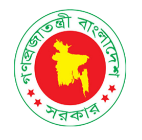Introduction: Strengthening Household Ability to Respond to Development Opportunities (SHOUHARDO) III is a development program funded by the United States Agency for International Development (USAID). Since its inception in 2015, the program addresses deeply rooted social norms that propagate inequalities through its women and girls empowerment interventions. The program developed the capacity of community group including women and girls and sensitized men to become active change agents in the last more than four years of its implementation, This study is an initiative to contribute to the program’s understanding of some of the prevailing challenges in the community including violence against women. To get to the root, the program applied an ethnography-like approach in two of the implementing villages. The key findings suggested that violence against women and malpractice like child marriage were still prevalent in the community. It found that social norms (e.g., son preference, always putting men as decision-makers) along with drug addiction, fueled the incidents of domestic violence. This form of violence was deeply rooted in the social discourses that were nurtured for long. Besides looking into GBV the study explored how handwashing was affected by individual perception.
July 28, 2020


